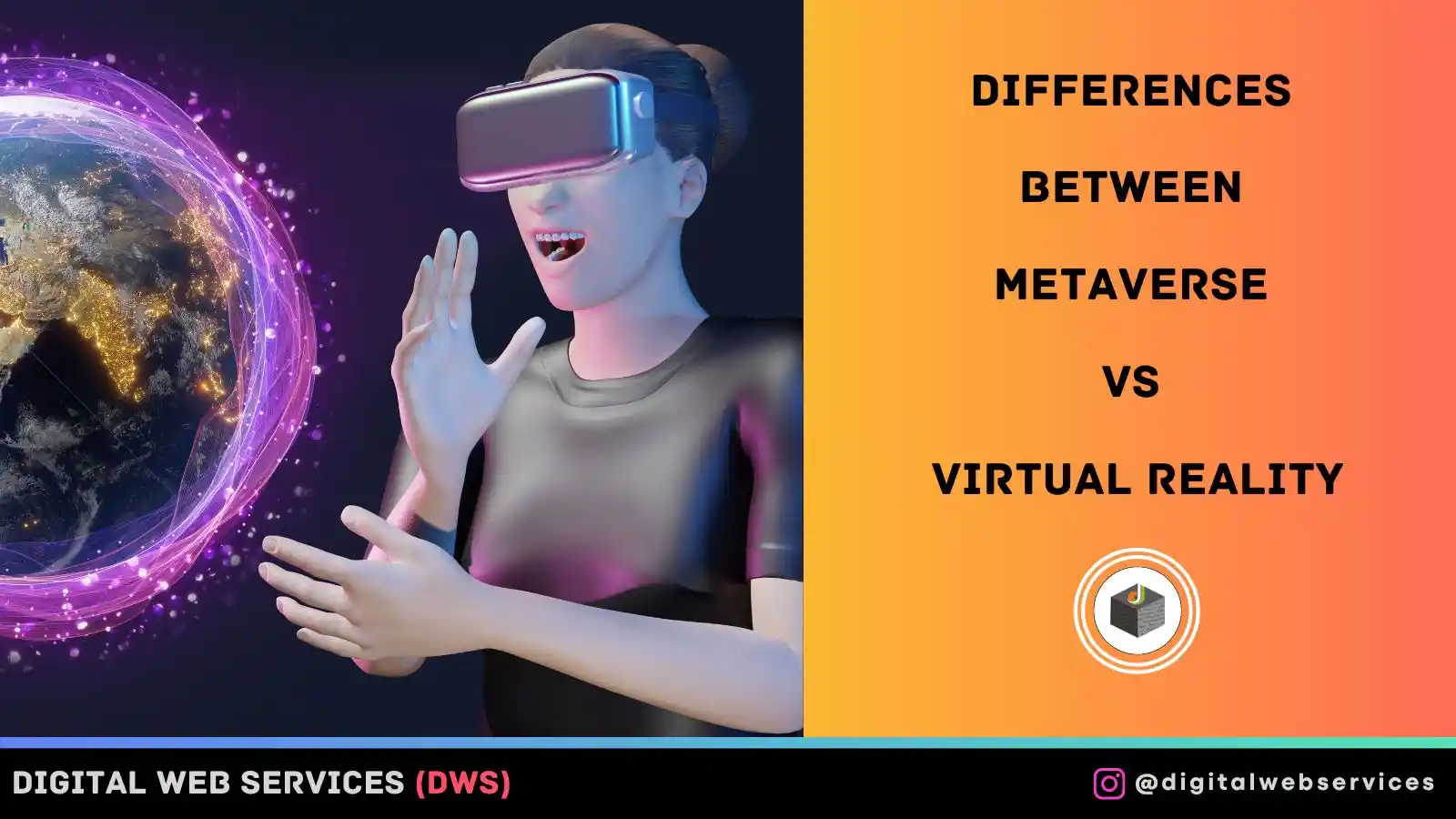
Two innovative technologies, Metaverse, and Virtual Reality, have made their presence felt in the ever-evolving technology era, transforming the way we connect.
Although both technologies are used to give customers a variety of virtual experiences, they differ significantly from one another. The distinctions between Virtual Reality and the Metaverse will be covered in this article here.
First and foremost, one needs to grasp the fundamental definitions of the Metaverse and Virtual Reality. The Metaverse is a three-dimensional, online, open, shared virtual world that connects several platforms. Users from all over the world may meet and socialize, cooperate, go to concerts, play games, hold conferences, and much more thanks to the integration of multiple virtual spaces.
Virtual Reality on the other hand binds 3D environments with sound, touch, and sight elements that ensure users enjoy immersive virtual experiences. An ideal VR game development company can guide the users through the shared virtual world that makes them feel they are in space and the moment. VR game development companies continue to be highly in demand in various spheres as new technologies make their presence felt.
Let’s take a closer look at the differences between Metaverse and Virtual Reality:
Unique Experiences
Metaverse and Virtual Reality are supposed to be like a couple in virtual reality that offers varied but unique experiences. Different users prefer to live their virtual worlds in different ways, leveraging both platforms with different motives and intentions. Businesses also deem them to be useful to transport their intended clients to virtual worlds and project their offerings as a differentiator.
When it comes to the Metaverse, users can roam around as digital avatars in virtual environments. They can interact with other users, play games, collaborate, and do a lot more than interact in various metaverses. This virtual world experience is similar to the real world, with many of these experiences even promising an alternate reality and position compared to their real-world avatars.
Virtual Reality does offer users a distinct virtual experience through VR devices but their world-building is limited to individuals who are comfortable with playing their games using these devices.
Accessibility
The Metaverse compared to other virtual experiences is touted to be still early and in development. One can read about it in the news where many tech-giant companies including Apple and Microsoft are heavily betting on it for providing distinctly unique virtual experiences. One can expect metaverse to break through multiple approaches of AR, VR, and others to make a solid impression amidst loud popularity from the masses.
Virtual Reality is already popular in various spheres while being available in every market. VR is now propelled by the interest generated by big companies like Facebook, Sony, and others. Every company is keen to make users believe that they have the keys to help them experience the virtual world in utmost reality!
Limits due to the Technology
The Metaverse is dependent on the blend of augmented reality, virtual reality, blockchain, and so much more. It is not an isolated world but a platform that blends virtual technologies all under one environment with diverse functionalities. With no restrictions, this virtual environment makes the best use of the latest technologies to enhance user experience.
In contrast, Virtual Reality continues to be bogged down by limitations since it is just VR that cannot dictate any other experience to the user. New advancements in VR technology though have managed to surprise nowadays and one can expect that the virtual experience offerings are bound to get better with time.
Ownership Potential
The Metaverse offers users full ownership rights. Whatever users create in the Metaverse belongs to them, including virtual goods like virtual real estate, items, and other virtual experiences.
In contrast, users of VR systems are experiencing the VR system that the brand owns and builds. The brand owns the material, such as a VR headset or any other VR device, to provide users with thrilling virtual reality experiences.
Persistence Capacity
In the Metaverse, a user’s digital avatar remains even if they leave the Metaverse as it is a shared environment. Users’ digital avatars can interact and participate with other users in their absence, providing a persistent experience.
In contrast, VR does not offer persistence capacity as it is limited to the individual playing the game using VR devices.
Social Connections
The metaverse is unique because it is social in its approach. The metaverse offers the opportunity to interact with other users in real-time, wherever they may be, as a shared environment. You may take part in activities, go to concerts, have conversations, and even work on projects with other people.
VR, on the other hand, immerses the user in a virtual environment and is more of a solitary experience. Although VR delivers a distinctive and immersive experience, it lacks the metaverse’s social component.
Expectations from Metaverse and Virtual Reality in the Future
The potential for VR and the metaverse is huge in the immediate future because of their latent possibilities. However, one can expect the metaverse to get ahead and gain more traction as companies like Facebook/Meta are now making inroads and investments to fuel their growth in terms of reach and innovation. As the platform grows, expect users to bank in several such realistic virtual experiences to enjoy their new identities.
The metaverse is continuously touted to be a realized virtual environment that can be integrated with real applications of the actual world and allows users to share digital space. AR and VR have fueled this environment in terms of their vision and have become simpler with time.
Virtual reality is also anticipated to become popular as days go by as many companies have figured out that they can extend its utility beyond just games and entertainment. Virtual reality is now looking forward to harnessing several professional training simulations so that professionals get a first-hand experience of the field through rich and customized experiences. Expect VR to make a splash in healthcare and rehabilitation in various ways. Although virtual reality (VR) has already made an insane impression on several sectors, VR is expected to make its own identity where its niche applications will evolve with new technological improvements.
Conclusion
Ultimately, it’s expected and shared by experts that both metaverse and virtual reality will have a niche impact in real-world applications. Expect metaverse and virtual reality to affect how humans communicate, work, and play in a digital environment.
As virtual experiences increase, their functions, accessibility, and social features are expected to evolve and become immensely immersive backed by new technologies.
Digital Web Services (DWS) is a leading IT company specializing in Software Development, Web Application Development, Website Designing, and Digital Marketing. Here are providing all kinds of services and solutions for the digital transformation of any business and website.










